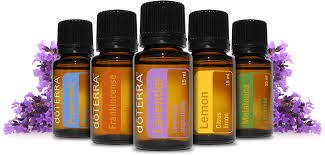Top 8 Traits of Highly Effective Pharmacy Technicians
/Behind every good pharmacist is a great pharmacy technician. Things run more efficiently, staff relations are better and ultimately the patient receives better care with a good pharmacy technician. Here are my top 8 traits I look for in a good pharmacy technician.
1. Team Player
A team player is willing to go above and beyond the normal job description and help with other job roles of the team when there is a deficit in the team. They will not worry about what others are doing on the team but be a positive team player helping serve the patient.
2. Self-starter
Taking the initiative on getting things completed is a very desirable trait with a pharmacy technician. Noticing where help is needed and jumping in without being told is one of my favorite traits of a technician.
3. Problem Solving/Critical thinking
Improving process and making things better is not just for the pharmacist but for the technician as well. Many times the pharmacy technician has a unique view into operations that the pharmacist may not recognize.
4. Committed to Learning
Medicine is a fluid field of study. Not only do guidelines change for the patient, but patient care and pharmaceutical delivery changes happen as well. A good technician will be committed to the process of improvement and making things better by keeping up-to-date with the field.
5. Customer Service/Communicator/Conflict Resolution/Empathy
Rather than showing defensiveness and pointing out errors with nursing, a good technician will be able to problem solve as mentioned above but also be able to deliver the message in a kind way. The pharmacy technician will be able to help when needed and be able to help diffuse emotional issues and be a “go to” person for the nursing staff when medication help is needed.
6. Accuracy, Focus and Detail Oriented in a Busy Environment
Being able to focus on details with a lot of external stimuli is a plus! I know from first-hand experience how difficult this can be, but someone who can focus well and be very accurate is a trait I find important in a pharmacy technician.
7. Prioritization, Organization and Time Management
When someone on the medical team needs something STAT, being able to prioritize and manage requests and know the timing is very important to flow and getting things done. Knowing that a medication is due later in the day and can wait versus loading a medication on the floor that will be needed at morning meds is part of knowing how to prioritize and organizing the day to complete tasks. It is also important to know how to manage the day when things are not as busy and going above and beyond to do the things that are normally on the bottom of the list.
8. Computer Skills
Last but not least, every technician needs to know how to work a computer and be able to quickly learn how to problem solve with a computer to help triage and manage problems.








